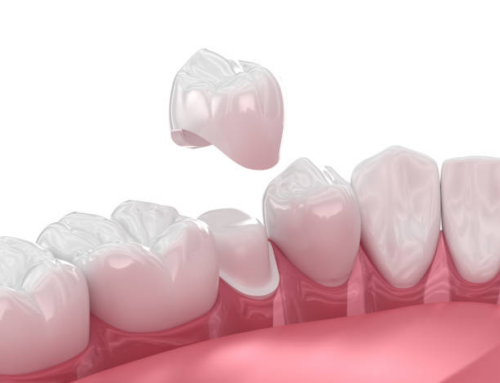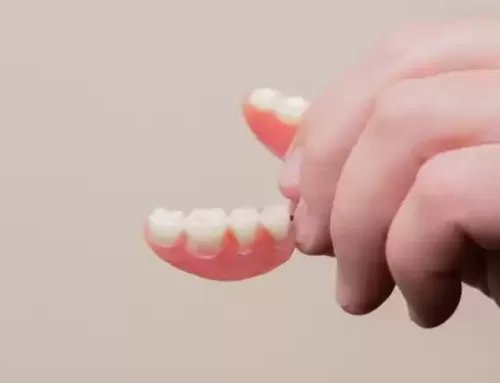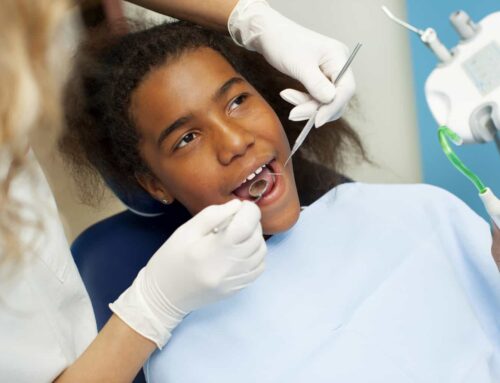Temporary dental crowns are tooth-shaped caps that cover your natural teeth. They protect the tooth while a permanent crown is made. This allows you to chew your food normally without worrying too much about tooth sensitivity or decay. While temporary dental crowns are not meant to be worn for more than a few weeks, taking good care of them is still essential. They are more robust than permanent crowns so they may become damaged or even fall out without proper care. Do you know how to take care of a temporary dental crown?
What Are Temporary Dental Crowns?
Temporary dental crowns are usually made from stainless steel or acrylic-based plastic. These materials have little economic value because they are meant to last for a while. They are fixed using temporary dental cement.
Temporary crowns come in three types, depending on how they are made: direct fabricated crowns, indirect laboratory-processed interim crowns, and pre-formed polycarbonate crowns. Direct fabricated crowns are built chairside by the dentist directly onto the tooth. These crowns are meant to last 2-3 weeks.
Indirect laboratory-processed interim crowns are often used when the temporary crown needs to last longer. The dentist takes an impression of the tooth to create a sturdier crown in a dental lab. These crowns usually look better, are easier to clean, and fit better.
Pre-formed polycarbonate crowns are crowns that have already been made before you arrive at your dentist’s office. They can be adjusted, shaped, and custom-fit to your mouth and are a quick, effective solution for those who need a temporary crown.
How to Care for Temporary Dental Crowns
No matter what type of temporary dental crown you get, you still need to take good care of it. There are a few things you should do to care for your crown. First, certain foods should be avoided. Chewing hard or sticky foods could lead to a cracked tooth crown or even pull it out of your mouth. In fact, it’s best to avoid chewing on the side of your mouth with the crown altogether.
Good oral care is essential to protecting your temporary dental crown. While the crown can reduce the risk of decay, it is not sealed as well as a permanent crown will be. As such, regular, thorough brushing and flossing are critical to protecting your teeth and crown. Just avoid brushing or flossing too vigorously. Be gentle! When flossing, get the string down beneath the teeth to clean it. To remove the floss, let go of one end and pull it through rather than trying to pull it back up (that could loosen or remove the crown).
On that note, use a soft toothbrush. Soft toothbrushes are less likely to damage temporary dental crowns while effectively removing food particles and plaque.
Do not put off your dental visits. Remember, the crown is only supposed to last a few weeks. The sooner you get the permanent crown, the better.
Common Issues with Temporary Dental Crowns
While temporary dental crowns are a great interim measure, they are just that–an interim measure. That is why dentists use dental cement that does not have the same holding power as the dental cement used for permanent crowns. That can result in temporary dental crowns becoming loose or even falling out. Taking good care of the crowns and being cautious with them reduces the risk of that happening.
Pain and sensitivity are other common issues with temporary dental crowns. Temporary crowns do not usually fit as precisely as permanent crowns. Because they are not as sealed as permanent crowns, your teeth are also more susceptible to decay, which often causes increased pain and sensitivity. This is especially true of teeth that have already been prepared for having a crown placed on them.
Temporary tooth crowns are also less sturdy than permanent crowns. This is again because they are meant to be temporary, while permanent crowns are meant to last for far longer. Permanent crowns have to be more durable in comparison. Because of the relative weakness of temporary crowns, they are more prone to breaking and chipping (mainly if you are not careful with what you eat and how you chew).
When to Contact Your Dentist
If you notice signs of trouble with your temporary dental crown, contact your dentist. It is vital to address those issues sooner rather than later to protect your teeth. You should also contact your dentist to schedule a follow-up appointment and to prepare for your permanent crown placement.
Conclusion
Taking good care of your temporary dental crowns is essential to keeping them in good shape so that they can protect your teeth effectively. Talk to your dentist if you have any questions about how to care for your tooth crowns correctly or if you have any concerns about them. That way, you can get the care you need to keep your teeth as healthy as possible. If you are in the Valencia, California area, visit Sierra Dental Practice, of expertly crafted temporary dental crowns.





